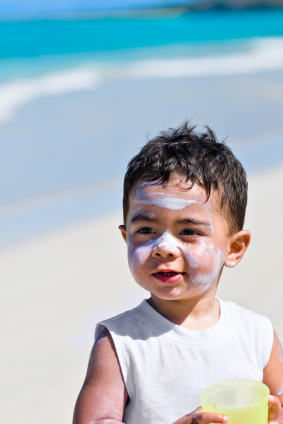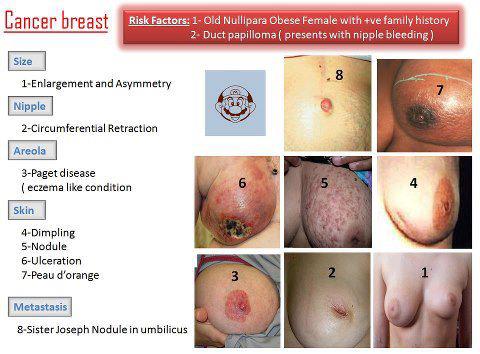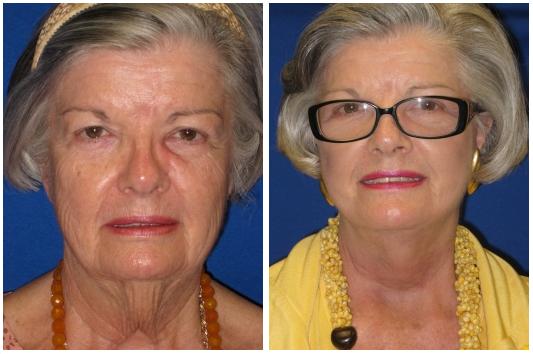About Sunscreen What You Need to Know
As the weather gets warmer, enjoying the sunshine becomes top priority. But increased sun exposure also means an increased risk of sunburn and, in turn, skin cancer if you don't adequately protect yourself.
Last summer the U.S. Food and Drug Administration instituted new sunscreen label guidelines so consumers could clearly tell which ones offered the most protection. The new labeling was supposed to be in effect by this summer, but the FDA extended the deadline to December, as companies were having trouble complying.
Dermatologists say having the proper information is crucial when out in the summer sun.
"Wearing sunscreen and then deliberately going out in the sun is almost as [bad] as going out with no sunscreen at all," said Dr. Robin Ashinoff, chief of dermatologic and cosmetic surgery at Hackensack University Medical Center. "You don't get burned, but the UV rays are still getting into your skin. Sunscreen is important, but you should also wear the right clothing and shield yourself as much as possible from direct sun exposure."
Here are some tips from experts on how to properly use sunscreen and protect yourself from sun damage:
The difference between SPF 50 and SPF 100 is marginal; look for "broad spectrum" on the label.
"You should get the highest number you can, but anything above 50 and the difference is pretty slim," Ashinoff said. "But don't get anything less than SPF 30, as that offers minimal protection."
A broad spectrum sunscreen protects against both UV-A and UV-B rays. UV-A rays don't necessarily cause a visible burn (that's what UV-B rays do), but they penetrate deep into the skin and can damage the collagen in your skin as well as your immune system, Ashinoff said.
No sunscreen is waterproof or sweatproof.
One of the new FDA guidelines is that no sunscreen can be labeled as "sweatproof" or "waterproof," because it's misleading and overstates the effectiveness of the product.
"There are no sunscreens that work after someone swims," said Dr. Naana Boakye of Bergen Dermatology in Englewood Cliffs. "You still need to reapply it every two hours, if you're in the water or not."
Many sunscreens in stores still have the "waterproof" and "sweatproof" labels, and their makers don't have to change the labels until December, when sunscreen will be the last thing on anyone's mind.
Light-colored clothes don't protect you from UV rays any better than dark-colored clothes, but tightly woven fabrics will block out more rays.
"This offers more protection than a looser, airy garment," Boakye said. "But wearing any kind of protective clothing out in the sun is better than nothing."
Tightly woven fabrics include canvas, twill and denim, as opposed to loosely woven fabrics like mesh and crepe.
You can still get sunburned even if it's cloudy outside.
In fact, cloudy days are when you can get more severe sunburn, especially if you're extremely fair-skinned.
"I see the worst sunburns in the spring because it's still not full summer sun and people think they don't need to be using sunscreen," Ashinoff said. "If you're out in full sun or not, you should be applying about 2 ounces of sunscreen, about the size of a shot glass, over your exposed skin."
Get a thorough skin care exam every year, even if skin cancer doesn't run in your family.
Even if moles don't dot your skin or if you tan easily and don't burn, dermatologists still stress the importance of regular skin checks.
People with fair skin, light eyes, a lot of moles and a family history of melanoma are more at risk for developing skin cancer. Also, those taking certain medications like antibiotics and diuretics are more susceptible to sun damage.
"I usually advise people to come in once a year if there's no history," Boakye said. "But if you have a lot of moles or have a history of melanoma, then you should be getting checked every three to six months."
BY: ERINN CONNOR
Last summer the U.S. Food and Drug Administration instituted new sunscreen label guidelines so consumers could clearly tell which ones offered the most protection. The new labeling was supposed to be in effect by this summer, but the FDA extended the deadline to December, as companies were having trouble complying.
Dermatologists say having the proper information is crucial when out in the summer sun.
"Wearing sunscreen and then deliberately going out in the sun is almost as [bad] as going out with no sunscreen at all," said Dr. Robin Ashinoff, chief of dermatologic and cosmetic surgery at Hackensack University Medical Center. "You don't get burned, but the UV rays are still getting into your skin. Sunscreen is important, but you should also wear the right clothing and shield yourself as much as possible from direct sun exposure."
Here are some tips from experts on how to properly use sunscreen and protect yourself from sun damage:
The difference between SPF 50 and SPF 100 is marginal; look for "broad spectrum" on the label.
"You should get the highest number you can, but anything above 50 and the difference is pretty slim," Ashinoff said. "But don't get anything less than SPF 30, as that offers minimal protection."
A broad spectrum sunscreen protects against both UV-A and UV-B rays. UV-A rays don't necessarily cause a visible burn (that's what UV-B rays do), but they penetrate deep into the skin and can damage the collagen in your skin as well as your immune system, Ashinoff said.
No sunscreen is waterproof or sweatproof.
One of the new FDA guidelines is that no sunscreen can be labeled as "sweatproof" or "waterproof," because it's misleading and overstates the effectiveness of the product.
"There are no sunscreens that work after someone swims," said Dr. Naana Boakye of Bergen Dermatology in Englewood Cliffs. "You still need to reapply it every two hours, if you're in the water or not."
Many sunscreens in stores still have the "waterproof" and "sweatproof" labels, and their makers don't have to change the labels until December, when sunscreen will be the last thing on anyone's mind.
Light-colored clothes don't protect you from UV rays any better than dark-colored clothes, but tightly woven fabrics will block out more rays.
"This offers more protection than a looser, airy garment," Boakye said. "But wearing any kind of protective clothing out in the sun is better than nothing."
Tightly woven fabrics include canvas, twill and denim, as opposed to loosely woven fabrics like mesh and crepe.
You can still get sunburned even if it's cloudy outside.
In fact, cloudy days are when you can get more severe sunburn, especially if you're extremely fair-skinned.
"I see the worst sunburns in the spring because it's still not full summer sun and people think they don't need to be using sunscreen," Ashinoff said. "If you're out in full sun or not, you should be applying about 2 ounces of sunscreen, about the size of a shot glass, over your exposed skin."
Get a thorough skin care exam every year, even if skin cancer doesn't run in your family.
Even if moles don't dot your skin or if you tan easily and don't burn, dermatologists still stress the importance of regular skin checks.
People with fair skin, light eyes, a lot of moles and a family history of melanoma are more at risk for developing skin cancer. Also, those taking certain medications like antibiotics and diuretics are more susceptible to sun damage.
"I usually advise people to come in once a year if there's no history," Boakye said. "But if you have a lot of moles or have a history of melanoma, then you should be getting checked every three to six months."
BY: ERINN CONNOR




I am a little terrified of going out now. I'll just travel in a dark bubble.
ReplyDeleteSunburn is painful and it sucks! Thank god there's sunblock to avoid such things.
ReplyDeletegreat article, learnt something from it
ReplyDeleteI don't even use sunscreen and I live in Florida, I probably should though.
ReplyDeleteOnly used sunscreen rarely, but great guide
ReplyDelete